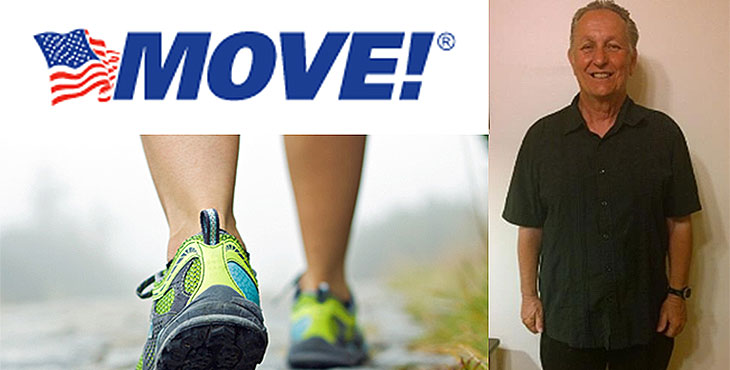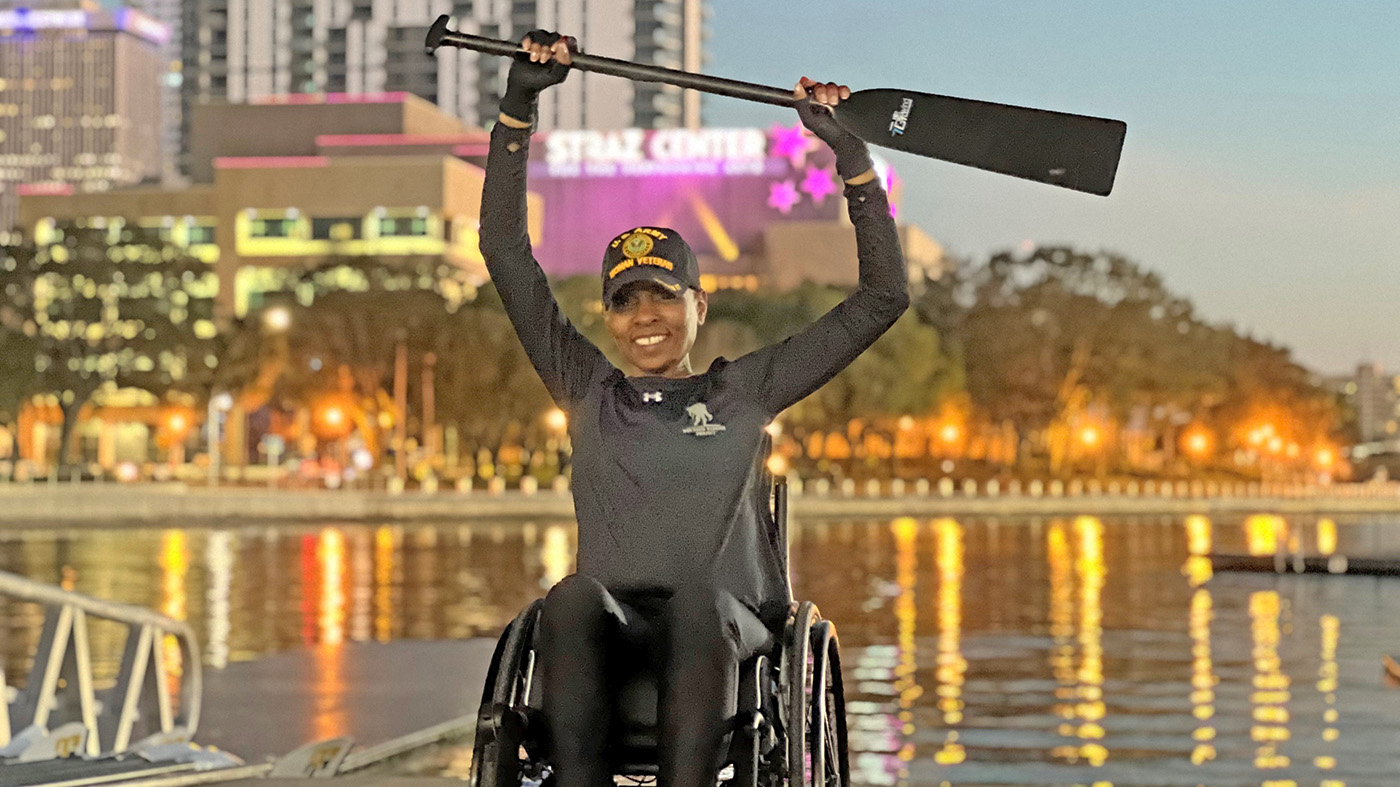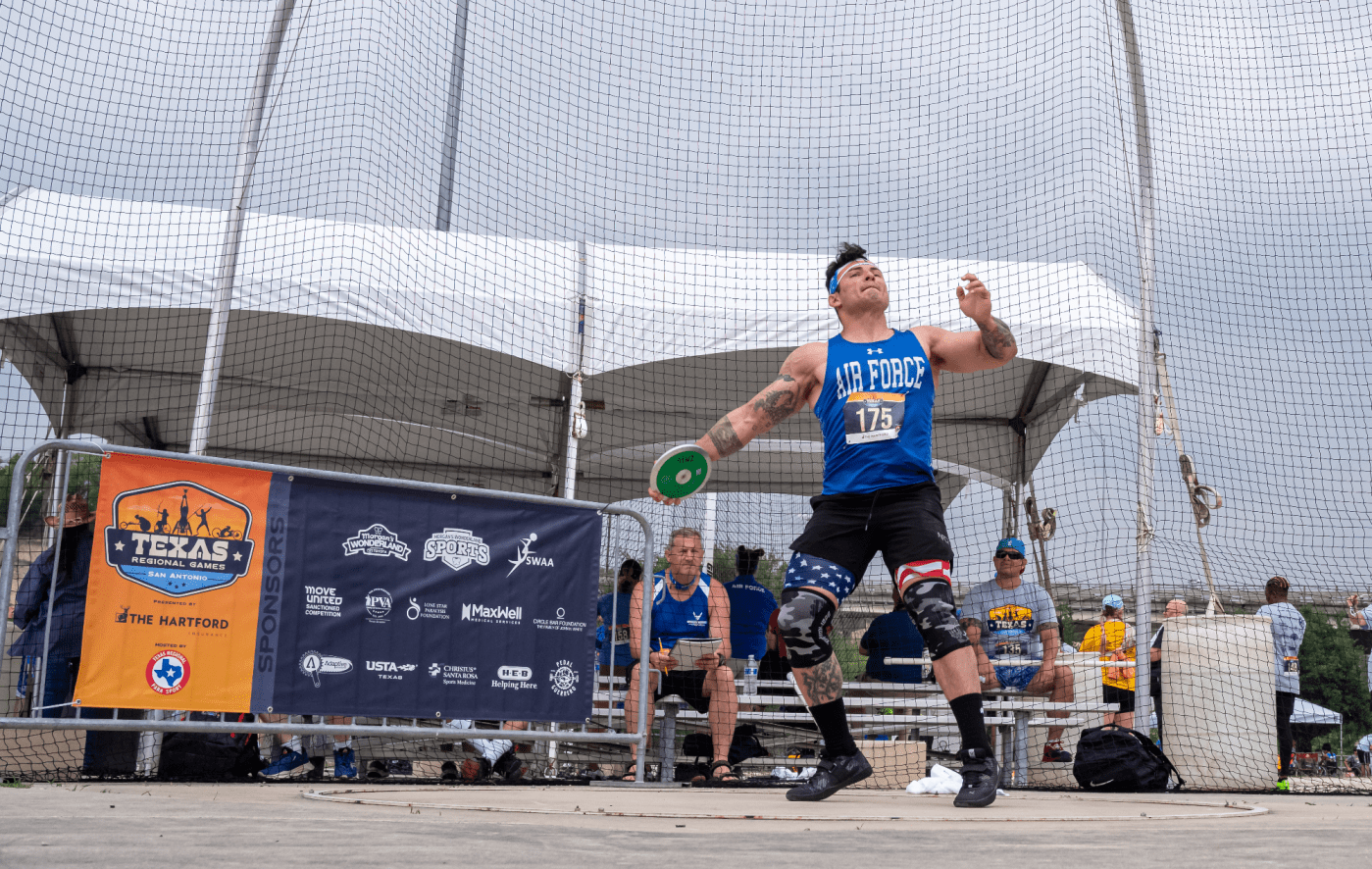As a registered dietitian working in the field of bariatric surgery (weight loss surgery), I have seen veterans transform their lives and regain their independence by losing a massive amount of weight. Although by most definitions the majority of patients are successful, unfortunately, I have also worked with patients who regained a substantial amount of or all of the weight they had lost. This is why, when discussing these procedures, we use the analogy of a strong tool. No matter how powerful a tool is, the owner must use it skillfully in order to see a good outcome. Ray, a Navy Veteran, is a perfect example of how to do it right.
Ray’s Story
I first met Ray at an informational class, where he came to learn about Bariatric Surgery. Before he decided to take control of his life and of his body, he reached a high weight of 473 pounds. As he described it “I made a decision to grab the bull by the horns.”
Because of some of Ray’s health problems, he was at a high risk for complications from surgery. In order to help him reduce these risks, he needed to lose a significant amount of weight. Ray began using the VA’s MOVE! Weight Management Program and lost 73 pounds.He still had a long way to go before getting bariatric surgery so he was enrolled in an intense pre-operative weight loss program, where he reported to the VA every week for a weigh-in, bloodwork, and a group meeting. Over the course of six months, Ray managed to lose another impressive 108 pounds. What always struck me about Ray was his ability to stay positive throughout the entire process. He would use his past experience as a drug and alcohol counselor to encourage other Veterans. I’d often hear him telling them “take it one day at a time, or one moment at a time, if you need to”.
Ray had bariatric surgery and over the following two years he lost another 93 pounds. Today, he weighs 199 pounds and has been able to do things that he never thought he would be able to do again such as a visit to Yankee Stadium in New York.
“No way I would have done that 5 years ago,” he said regarding all the walking involved.
When we first met, he started using a pedometer and was only able to walk 400 steps per day. Now he routinely walks over 10,000 steps per day and set a personal record of 20,000 steps in one day. When I asked Ray to share a little bit about his journey, this is what he said:
“It’s been amazing. I had a lot of health issues related to my weight – I had diabetes, high blood pressure, sleep apnea, and many other problems. Now, I’m off all of my diabetes and hypertension medications; I no longer have sleep apnea and I feel energetic and just overall healthier. I feel the preparation the VA gave me really helped me succeed. It is a lot of work though.
“I have to watch my diet and really monitor myself because I know that if I don’t, I will put weight back on. I have to drink a lot of water; take my vitamins religiously; exercise at least 3 times per week; and I’m constantly learning about what I can and can’t eat. Like I said, it’s a lot of work. But it’s given me my life back. So my advice to others considering surgery, is just to realize that if you want it to work for you, you have to work for it – not just today, but every day for the rest of your life.”
According to a recent study comparing health-related characteristics of Veterans and non-Veterans, Veterans have a higher rate of obesity than non-Veterans. Obese people are also more likely to have other health problems, like diabetes, heart disease and certain types of cancer. Based on a report from the Center for Disease Control and Prevention, the medical costs for people who are obese were higher per year than those of individuals at a healthy weight. For those who are overweight, it’s very important that we focus on losing weight, and for those at a healthy weight, we strive to stay there.
Take Control
I urge everyone to check out this Body Mass Index (BMI) Chart. What’s your healthy weight range? Are you overweight? Are you classified as obese? Your local VA caregivers want to help you. Programs vary from facility-to-facility and may include the following:
- The MOVE! Program has different options such as individual visits, group nutrition and exercise classes and some VAs have a TeleMOVE option which allows you to participate from your own home.
- Registered Dietitians are also available to meet with you one-on-one to help you with a plan specific to your needs. Ask your primary care doctor to refer you.
- For those who are reading this thinking “I’ve tried it all!” some VAs have weight loss medications available for appropriate patients to use in conjunction with diet and exercise efforts.
Lastly, weight-loss surgery may be an option for patients who are severely obese. These procedures are only considered if your BMI is over 40 kg/m2 or over 35 kg/m2 and you have at least one obesity-related health problem, such as diabetes, hypertension, sleep apnea or gastroesophageal reflux disease (GERD). You should only consider this option if other attempts to lose weight through diet and exercise have failed and you are prepared to make substantial and permanent changes in your lifestyle. There are different types of surgeries, which you can learn a little more about here , but you should discuss your options with your primary care provider and registered dietitian.
Whatever your weight management goals are, contact your local VA facility to find out about your options and get involved.
Rebecca Titchner is a registered dietitian at the VA Pittsburgh Healthcare System. She specializes in providing nutritional care to patients undergoing bariatric surgery.
Topics in this story
More Stories
Army Veteran Malika Montgomery says one of the things that helped her live her best life with multiple sclerosis was surrounding herself with positive people.
Acknowledging the issues that Veterans face and working toward solutions is crucial for ensuring they have the support they need to thrive in civilian life.
Last year, Move United hosted 26 adaptive sports competitions in 22 states for 1,537 individual athletes. This year, that number is increasing to 35 events in 24 states for even more Veteran athletes.







Rebecca:
I didn’t finish my tour of stateside duty in 1978, due to overweight issues. I was honorably discharged, and continued to gain weight.
I used the Atkins Revolution four times, losing over 100 pounds each time.
I didn’t lose much weight the 5th time I tried it.
I topped out at 356 pounds at 5 feet, 6 inches. Then, a friend handed me a copy of Eat Right 4/for Your Type. I started to easily loose weight, and dropped 50 pounds in 4 months. Since I am an A blood type, the meat diet was toxic! I was hurting myself by using the Atkins regimen.
During the intervening ten years, eating soy, brown rice, greens and fruits, I have steadily lost weight, when I was able to MOVE.
I saw, last week on the VIEW, a desk attached to a treadmill! Rosie, and Whoopie were steadily walking, while their guest whose name I missed, walked too.
Astonishing! I spend far too many hours at my desk, doing homework, and messing around on the internet, NOT to have one!
lose weight through diet and exercise have failed all the time with me im really impressed with the result that ray got before getting bariatric surgery i need to start to use the VA’s MOVE i want to change my life
I want to use this time to thank Rebecca and Deb for this program. This program provided me an opportunity to begin a new life. This is a positive program. They never ever put pressure on me to lose weight. This is a commitment for life. I take my life one day at a time. I have the tools and it is up to me to use them.
So thanks to Rebecca and Deb from my heart.
Raymond Martineau
I should hope this article is not to suggest that the very real diabetes connection to Agent Orange exposure can be changed, because it cannot. Once exposed, the damage is done, whether the veteran gets one of several illnesses, including diabetes, already connected to Agent Orange exposure. However, when the cascading affects of diabetes cause one to gain substantial weight, it is good to know this option is available. Here at the Portland, Oregon VA hospital it is still not available to veterans who ask for it.
Hi Cindy, thank you for your comment. The article is not meant to suggest anything related to Agent Orange- the goal here was to highlight one story of a very positive and motivated veteran who changed his life by improving his health and to suggest to all veterans that there are many caring healthcare professionals at their VAs anxious to help them do the same.
I have a question. I have Stage III chronic Kidney Disease. I am not on any kind of medication. Is it safe for me to go into a 30 day weight loss and cleansing program. I weight 240 lbs and need to lose at least 50 lbs. Do you have any suggestions.
Thank you for your comment Mr. Slaby. Some weight loss programs and cleanses can be dangerous for certain people if not properly monitored. I would suggest speaking with your primary care provider and asking for a referral to speak with a dietitian one-on- one. They can individualize a plan for you based on your specific medical history and problems to help you lose weight safely. I commend you on your motivation and wish you good luck!
I received the “Lap Sleeve Gastrectomy” on March 19, 2014. Before my surgery I weighed 374#. This morning, 10/07/2014, I weigh 273#. I had to loose 64# before my sugery. Before loosing this 100# I had many health problems. I couldn’t walk up stairs. I had to have my knees replaced, had. Severe sleep problems, high blood pressure and broke dowm several recliners… I had to reinforce my bed frame and went through several matteress. My weight goal is 220# or less. I walk three miles, three days per week. I climb 77 stairs getting to my new apartment. I now live in a brand new Serior Living Apartmemt and live on the TOP floor! I don’t use elevators any longer, have been taken off most of my meds. I am looking forward to next spring so that I can ride the bike trails in my community.
Congratulations on your weight loss and thank you for sharing your story!